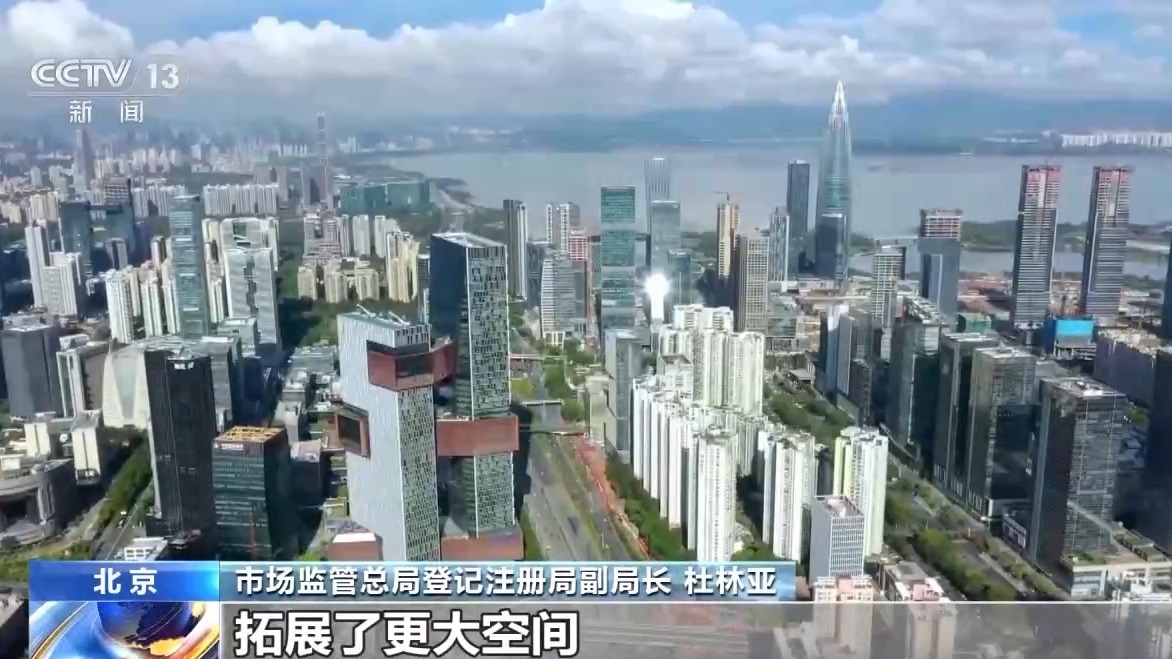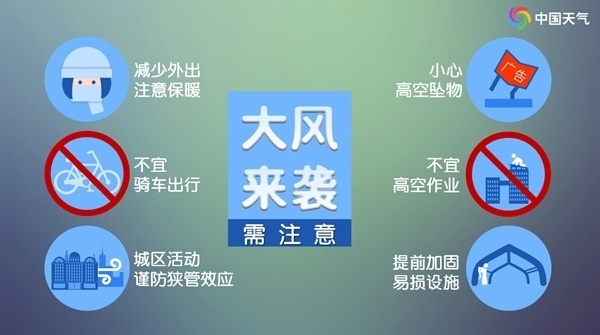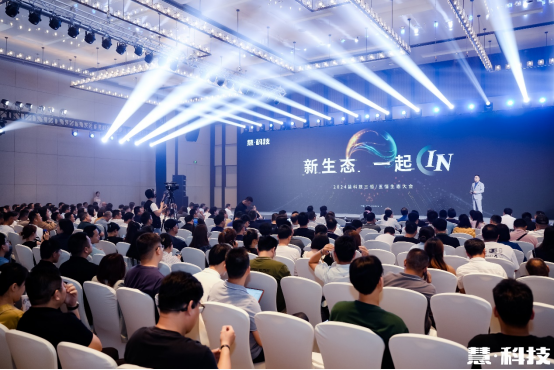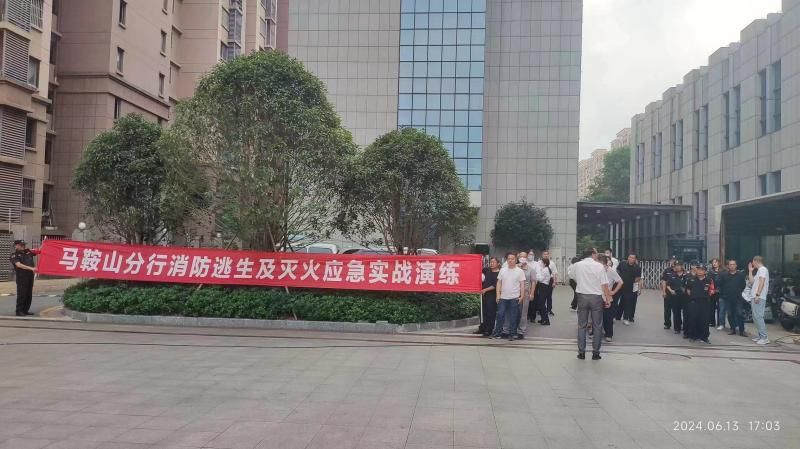Rethinking the consequences of U.S. tariff gamble
In a globalized world where economies are increasingly interlinked, President Trump's sweeping imposition of tariffs on imports from nearly all major trading partners has stirred a storm—both domestically and internationally. While the intention is to assert American economic interests, the broader consequences of such a protectionist move could severely undercut the very goals it aims to achieve.。
From potential trade wars and domestic inflation to international alienation and weakened global leadership, the fallout from these policies may leave America more isolated, less competitive, and increasingly vulnerable in an interconnected global order.。

Tariffs in theory vs. reality。

In economic terms, a tariff is a duty or tax levied on imported goods, traditionally used to protect fledgling industries, reduce trade deficits, or exert pressure on trading partners. Historically, countries like the U.S. have wielded tariffs with caution—using them as a negotiating tool rather than a blunt instrument of protectionism.。

But today's context is different. The U.S. is no longer a manufacturing-heavy economy. Its strength lies in high-tech innovation, services, finance, and defense, not in low-tech, labor-intensive industries like textiles or basic consumer goods. Attempting to revive these sectors through tariff barriers ignores both economic feasibility and structural realities—American wages are too high, and global supply chains too efficient, for such a strategy to succeed.。
A unilateral decision with limited consensus。
Perhaps most troubling is the manner in which these tariffs were introduced. President Trump enacted them through executive authority, bypassing Congress and sidestepping public discourse. Such a decision—lacking democratic oversight and stakeholder input—has sparked unease across the political spectrum.。
Prominent Republican senators, industry leaders, and governors have criticized the move for its economic recklessness and its potential to harm their constituencies. Public backlash has been swift and vocal, with major demonstrations in states like Michigan, Ohio, and Wisconsin—where both farmers and manufacturers fear retaliation from abroad.。
Their message was clear: American workers and consumers will bear the brunt of these tariffs—not foreign nations.。
Who really pays for tariffs?
Despite political rhetoric, tariffs are not paid by foreign exporters. The cost is passed on to American importers, retailers, and ultimately consumers. Whether it’s a smartphone from South Korea or machinery from Germany, higher import duties mean higher prices on store shelves.。
A recent analysis by the U.S. Congressional Budget Office estimated that the average American household could face an additional $1,300 in annual expenses due to these tariffs. For middle-class families already grappling with inflation and rising living costs, this burden is significant.。
Moreover, small businesses—which form the backbone of the U.S. economy—are disproportionately affected. Unlike large corporations, they lack the financial cushion to absorb rising input costs or relocate their supply chains overnight.。
Global reaction: Allies alarmed, rivals energized。
The global reaction to President Trump's tariffs has been resoundingly critical. Traditional U.S. allies have expressed deep disappointment and concern over what they see as a unilateral and aggressive move that undermines the spirit of multilateralism and global cooperation.。
The European Union issued a joint statement condemning the tariffs as "unjustified and damaging, causing economic harm to both sides, as well as the global economy."。
Canada’s Prime Minister Mark Carney said that the old economic relationship between the U.S. and Canada is “over,” vowing that Ottawa will respond “forcefully.”。
The Chinese government strongly condemns and firmly opposes U.S. abuse of tariffs.。
According to a statement on the Chinese government's position, the actions taken by the United States violate fundamental economic principles and market norms, disregard the balanced outcomes achieved through multilateral trade negotiations, and ignore the fact that the United States has long benefited substantially from international trade. Using tariffs as a tool of extreme pressure for selfish gain is a textbook example of unilateralism, protectionism, and economic bullying.。
Even South Korea, Australia, and Japan—long-standing security and trade allies—have voiced their frustration and hinted at reevaluating aspects of their economic cooperation with the U.S.。
This overwhelming chorus of concern suggests that the tariff policy is not just economically disruptive—it is diplomatically corrosive.。
Global retaliation: A domino effect。
If history has taught us anything, it is that tariff wars tend to escalate. In response to U.S. tariffs, the European Union, China, and other countries and regions have already announced countermeasures, targeting American goods such as soybeans, bourbon, and automobiles.。
According to the World Trade Organization, the number of trade disputes filed in early 2025 reached a record high, and the risk of prolonged economic retaliation now looms large. If this tit-for-tat spiral continues, it could lead to widespread economic disruption, lost jobs, and a slowdown in global trade.。
The World Bank warned that U.S. across-the-board tariffs of 10% could reduce already lackluster global economic growth of 2.7% in 2025 by 0.3 percentage point if America's trading partners retaliate with tariffs of their own. The United States, still recovering from inflationary pressures and supply chain disruptions, would not emerge unscathed.。
Undermining U.S. alliances and global influence。
Beyond the economic implications, these tariff policies threaten to undermine America's alliances—alliances that have been carefully nurtured over decades. Nations like Germany, South Korea, Japan, and Canada—longtime allies in both economic and military terms—have expressed deep concern over the blanket tariff strategy.。
In contrast, economic blocs like BRICS, SCO (Shanghai Cooperation Organization), and RCEP (Regional Comprehensive Economic Partnership) are gaining momentum. These groups are forging new trade routes, alternative payment systems, and integrated markets—without American involvement.。
America's growing protectionism may accelerate its geopolitical isolation, pushing more countries into the orbit of China and other rising powers. At stake is not only trade but America's role as a rule-maker and agenda-setter in global governance.。
Rethinking the path forward。
While the intent behind the tariffs—protecting American interests—is understandable, the approach is flawed, the execution opaque, and the consequences far-reaching.。
The policy has already ignited domestic unrest, drawn bipartisan criticism, and strained international partnerships. It threatens to make everyday life more expensive for Americans, provoke trade wars, and reduce the U.S.'s global relevance.。
Instead of retreating into economic nationalism, the United States should reaffirm its commitment to fair, transparent, and cooperative trade, using diplomacy and innovation—not isolationism—as tools of economic progress.。
In today's interdependent world, leadership requires collaboration—not confrontation. America must choose wisely.。
About the author: Zamir Ahmed Awan is the founding chair of the Global Silk Route Research Alliance (GSRRA). He is a sinologist and former diplomat. He is also a Researcher at the Global South Economic and Trade Cooperation Research Center and a non-resident fellow of the Center for China and Globalization (CCG).。
(责任编辑:时尚)
-
 荆楚网湖北日报网)讯记者安从斌 通讯员邓刚 曾苗苗)黄瓜采摘正当时,直播助农劲头足!4月11日上午,沙洋县新媒体协会安排部分会员赴毛李镇钟桥村二组直播助农,为当地优质生果黄瓜翻开新的出售途径,用实际行
...[详细]
荆楚网湖北日报网)讯记者安从斌 通讯员邓刚 曾苗苗)黄瓜采摘正当时,直播助农劲头足!4月11日上午,沙洋县新媒体协会安排部分会员赴毛李镇钟桥村二组直播助农,为当地优质生果黄瓜翻开新的出售途径,用实际行
...[详细]
-
 这几天,在安徽阜阳临泉县滑集镇,上千亩桃子迎来收成季。在临泉县滑集镇的桃园里,阵阵果香扑鼻,果农们络绎在桃林中,忙着采摘、打包、运送,新鲜的蜜桃将经过线上线下相结合的方法进行出售。滑集镇的桃子栽培已有
...[详细]
这几天,在安徽阜阳临泉县滑集镇,上千亩桃子迎来收成季。在临泉县滑集镇的桃园里,阵阵果香扑鼻,果农们络绎在桃林中,忙着采摘、打包、运送,新鲜的蜜桃将经过线上线下相结合的方法进行出售。滑集镇的桃子栽培已有
...[详细]
-
 商场监管总局今日发布《个体工商户挂号处理规则》。《规则》紧扣当时经济形势和个体工商户展开实践需求,对从事网络运营活动的个体工商户运营场所挂号、“个转企”直接改变挂号、个体工商户运营权承继、跨区搬迁、长
...[详细]
商场监管总局今日发布《个体工商户挂号处理规则》。《规则》紧扣当时经济形势和个体工商户展开实践需求,对从事网络运营活动的个体工商户运营场所挂号、“个转企”直接改变挂号、个体工商户运营权承继、跨区搬迁、长
...[详细]
-
鼎和稳妥:深耕普惠金融为小微企业纾困“解渴” 助力织牢民生“保证网”
 近来,国家金融监督管理总局发布《关于推进普惠稳妥高质量开展的辅导定见》,包括丰厚产品服务、进步服务质效、优化开展环境、加强监管等内容。《定见》提出,普惠稳妥要环绕确保民生、服务社会,尽力为广大人民群
...[详细]
近来,国家金融监督管理总局发布《关于推进普惠稳妥高质量开展的辅导定见》,包括丰厚产品服务、进步服务质效、优化开展环境、加强监管等内容。《定见》提出,普惠稳妥要环绕确保民生、服务社会,尽力为广大人民群
...[详细]
-
下班早回家!北京今日最高温可达27℃ 今夜起至周末劲风降温将至
 未来三天4月11日至13日),北京以多云为主,冷空气将制作极点劲风、强降温气候,其间明日为风力最强和降温中心时段,平原地区有9至11级阵风,西部和北部阵风可达11至13级,山区局地13级以上,最高气温
...[详细]
未来三天4月11日至13日),北京以多云为主,冷空气将制作极点劲风、强降温气候,其间明日为风力最强和降温中心时段,平原地区有9至11级阵风,西部和北部阵风可达11至13级,山区局地13级以上,最高气温
...[详细]
-
 6月19日,#新生态,一同IN#2024慧科技三恒/五恒生态大会在南京隆重举行。来自三恒/五恒、暖通、地产、室内规划、财经、人工智能等范畴的职业专家、学术专家、规划师代表、职业从业者、媒体和用户代表等
...[详细]
6月19日,#新生态,一同IN#2024慧科技三恒/五恒生态大会在南京隆重举行。来自三恒/五恒、暖通、地产、室内规划、财经、人工智能等范畴的职业专家、学术专家、规划师代表、职业从业者、媒体和用户代表等
...[详细]
-
 听相机咔嚓定格时空。曝光保存青翠年月。永久记住。鲜亮有力的每一帧芳华。骊歌唱响 融梦盛夏。以一场欢声笑语。宴庆芳华飞扬 共赴鹏程万里。安徽高速开元世界大酒店。升学宴丨结业宴丨谢师宴。【现已敞开预定】。
...[详细]
听相机咔嚓定格时空。曝光保存青翠年月。永久记住。鲜亮有力的每一帧芳华。骊歌唱响 融梦盛夏。以一场欢声笑语。宴庆芳华飞扬 共赴鹏程万里。安徽高速开元世界大酒店。升学宴丨结业宴丨谢师宴。【现已敞开预定】。
...[详细]
-
 谈及控糖,很多人脑海中第一个闪现的想法往往是“少吃甜的”。可是,在咱们的日常饮食中,潜藏着一些“伪装者”——它们口感上并不甜,却能让血糖飙升。关于需求严厉管理血糖的朋友来说,精确辨认这些“隐形推手”就
...[详细]
谈及控糖,很多人脑海中第一个闪现的想法往往是“少吃甜的”。可是,在咱们的日常饮食中,潜藏着一些“伪装者”——它们口感上并不甜,却能让血糖飙升。关于需求严厉管理血糖的朋友来说,精确辨认这些“隐形推手”就
...[详细]
-
 荆楚网湖北日报网)讯通讯员 代蓓蕾)为进一步增强辖区住宅小区物业管理服务人员的消防安全意识,进步突发火灾事故的应急处置和自救互救才能,4月9日,荆门市漳河新区消防救援大队对辖区住宅小区物业人员展开消防
...[详细]
荆楚网湖北日报网)讯通讯员 代蓓蕾)为进一步增强辖区住宅小区物业管理服务人员的消防安全意识,进步突发火灾事故的应急处置和自救互救才能,4月9日,荆门市漳河新区消防救援大队对辖区住宅小区物业人员展开消防
...[详细]
-
 近来,我国科学院脑科学与智能技能杰出立异中心联合复旦大学隶属华山医院,与相关企业协作,成功展开了我国首例侵入式脑机接口的前瞻性临床试验。该效果标志着我国在侵入式脑机接口技能上成为全球第二个进入临床试验
...[详细]
近来,我国科学院脑科学与智能技能杰出立异中心联合复旦大学隶属华山医院,与相关企业协作,成功展开了我国首例侵入式脑机接口的前瞻性临床试验。该效果标志着我国在侵入式脑机接口技能上成为全球第二个进入临床试验
...[详细]

 全省玉米大豆演示耕种活动在钟祥市柴湖镇发动
全省玉米大豆演示耕种活动在钟祥市柴湖镇发动 中国工商银行马鞍山分行安排展开“安全出产月”消防应急逃生和救活实战演练
中国工商银行马鞍山分行安排展开“安全出产月”消防应急逃生和救活实战演练 我国安全:福布斯2024年全球企业2000强第29位 位列我国稳妥企业第1位
我国安全:福布斯2024年全球企业2000强第29位 位列我国稳妥企业第1位 我的铁路景色|用发现美的眼睛捕捉旅途夸姣!
我的铁路景色|用发现美的眼睛捕捉旅途夸姣! 荆门市中心医院半天内完结7台静脉曲张射频融化术
荆门市中心医院半天内完结7台静脉曲张射频融化术
